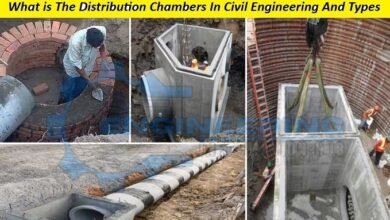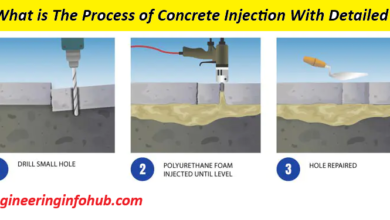How to Become a Construction As Project Manager
Construction Project Manager |Role of a Construction Project Manager

How to Become a Construction As Project Manager
Project management in construction is one of the most rewarding and demanding jobs in the building industry. To become a project manager in construction, it is necessary to possess a set of educational qualifications, relevant work experience, and high leadership qualities. A construction project manager (CPM) manages, coordinates, and controls all processes and development of a construction project, right through the initial design to the final handover. This role also involves working with different suppliers that support on-site progress, which can include a trusted excavator parts manufacturer providing essential components for heavy equipment. Most professionals in this career typically begin with a degree in construction management, civil engineering, or a related field, often accompanied by internship experience or an entry-level position. How to Become a Construction Project Manager
In addition to education, this position requires project scheduling, cost management, and risk evaluation, as well as communication mastery to succeed in this position. By equipping themselves with current qualifications and experience, potential professionals can work their way through to project management jobs and establish a well-rewarded career of managing major build projects.
Role of a Construction Project Manager
It is also vital to get acquainted with the role of a construction project manager before delving into the processes. These professionals are the connection between customers, architects, engineers, contractors, and employees. They usually have the following responsibilities:
Planning and Scheduling
Creation of schedules, preparing the project plans, and daily progress tracking.
Budgeting and Cost Control
Estimating cost, monitoring expenditure, and ensuring that projects are within budget. By employing construction estimating services, you can get accurate material quantities and cost breakdowns, which help project managers make informed financial decisions and keep projects on track.
Team Management
Organizing construction, subcontractors, and contractors.
Quality and Safety Compliance:
Making sure every work will pass the building code, safety legislation, and will fit the project requirements.
Problem-Solving:
Dealing with delays, supply, or on-site conflicts that were not foreseen.
Concisely, their role is to ensure a construction project is a success in terms of design to delivery.
Step 1: Earn the Right Education
Employers seek potential employees who have at least a bachelor’s degree in a field related to their job. The typical degrees are:
- Construction Management
- Civil Engineering
- Architecture
- Project Management
- Business Administration (construction-related coursework)
Such programs offer an understanding of construction approaches, project planning, budget, safety procedures, and leadership. Construction management associate degrees or diplomas can be an entry point to some community colleges.
Step 2: Gain Practical Experience in Construction
It is not sufficient just to educate. Construction field experience is essential. Most project managers initiate their careers as a project worker, site supervisor, or assistant project manager.How to Become a Construction Project Manager
Work experience assists you in:
- Learn to operate job sites.
- Train on how to work in skilled trades.
- Exposure to building codes, safety methodology, and construction equipment.
- Develop relationships with contractors and suppliers.
On-site work makes you legitimate once you become the project leader yourself.
Step 3: Develop Key Skills
An effective construction project manager should be proficient in both hard and soft skills. The following are some of the most important:
- Leadership: Capacity to lead teams and inspire employees.
- Communication: Clear communications with clients, contractors, and stakeholders.
- Organization: Effective use of schedules, budgets, and resources.
- Problem-Solving: Handling new changes as they come and avoiding slowdowns in the project.
- Technical Knowledge: Knowledge of blueprints, estimating, and construction technology.
- Time Management: Monitoring of projects to ensure attainment of deadlines.
Several employers also require knowledge of construction management software like Procore, Buildertrend, or Microsoft Project.

Step 4: Acquire Professional Certifications
Certifications are an excellent way to enhance your credibility and be competitive in the job market. Popular options include
PMP (Project Management Professional):
Globally acceptable, and it is useful in every field.
Certified Construction Manager (CCM):
Offered by the Construction Management Association of America (CMAA).
Associate Constructor (AC) or Certified Professional Constructor (CPC):
Offered by the American Institute of Constructors.
LEED Certification:
Concentrated on sustainable and green building initiatives.
These certifications are not always required, but they demonstrate to employers that you are devoted to professional growth.
Step 5: Build a Strong Professional Network
In the construction industry, networking is essential. Participate in your industry events, join associations (such as the American Society of Civil Engineers (ASCE) or Construction Management Association of America (CMAA)), and network with others on LinkedIn.
Good connections can also result in a job, mentorship, and collaborations on future endeavors.
Step 6: Apply for Project Manager Roles
After obtaining education, experience, and certifications, you can start to apply for the position of a project manager. Employers usually seek applicants who can prove:
- Experience with managing budgets and schedules.
- Leadership experience in the construction industry.
- Good communication and negotiation skills.
- Familiarity with industry regulations and safety laws.
Start with assistant, project management work as required, then start on your way to being a full project manager as you build your skills and experience.
Step 7: Continue Learning and Advancing
The construction industry evolves continuously through the use of emerging technologies, building materials, and safety regulations. To maintain the competitive edge, keep yourself learning by:
- Advanced certifications.
- Online construction software training.
- Courses in green building, BIM (Building Information Modeling), or advanced project management.
- Leadership training to handle bigger teams.
As you gain experience, you can become a senior project manager, construction director, or even open your construction management company.
Salary and Career Outlook
The U.S. Bureau of Labor Statistics predicts that the number of construction managers needed will increase in the next couple of years. The average salary of construction managers is approximately 100000 per year, so it can differ by experience level, geographical location, and scale of work.
The demand to buy higher wages and huge projects compensates project managers to a considerable extent in large cities like New York, Los Angeles, and Chicago.
Challenges of Being a Construction Project Manager
The position is quite rewarding but is also associated with setbacks:
- Extreme Responsibility: You are responsible for budget, safety, and deadlines.
- Long Hours: Projects will involve working outside of normal office hours
- Stressful Situations: Delay, cost overruns, and conflict are stressful situations.
Nonetheless, because of these obstacles, some professionals can find the career very satisfying as they see tangible, long-lasting benefits of their efforts in the form of buildings, bridges, and infrastructure that last for decades.
Construction project managers ensure that the designed skyscrapers are built, but also that housing construction is planned and run efficiently. This is a career path that can be both rewarding financially and personally fulfilling if you enjoy taking on challenges, leadership, and making a concrete difference.
Learn More
What are The Distribution Chambers In Civil Engineering, With Types
How To Cost Estimation To Make Your Project Successful
Calculate The Formwork For Columns, Beam, Girder, And Slab






